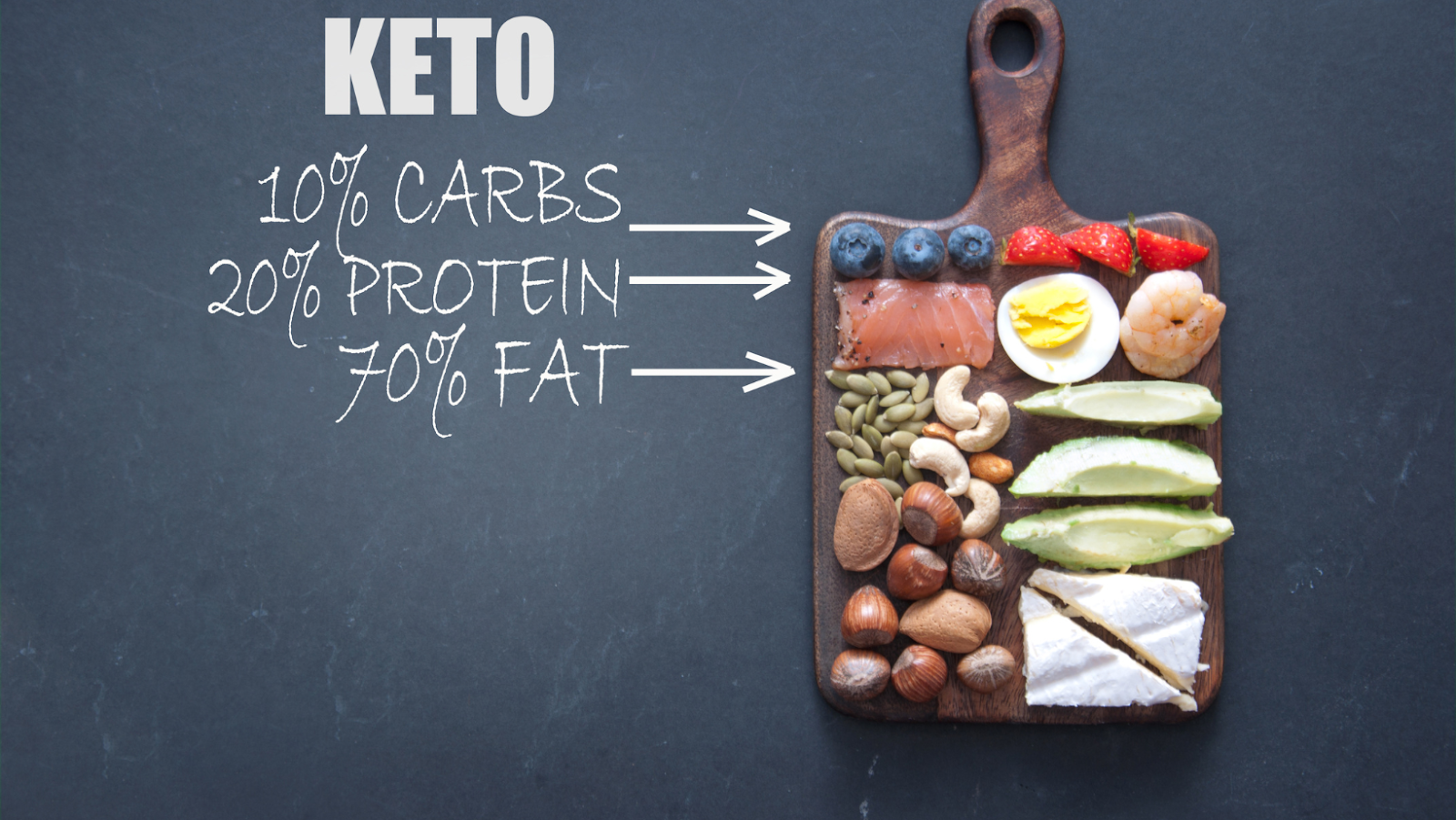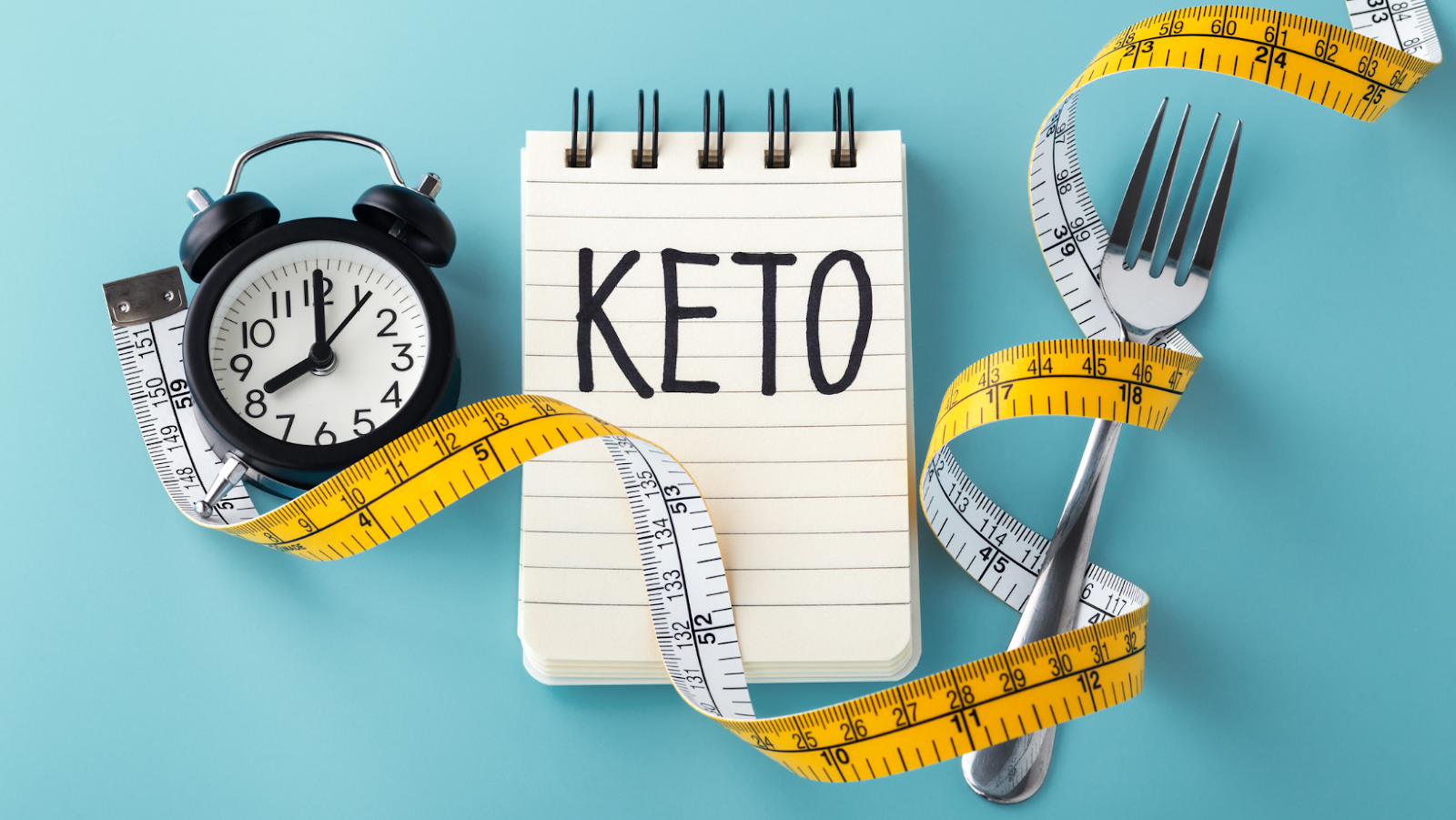The Keto Diet: Is it Healthy And Safe

If you’re like most people, you probably think of the keto diet as a fad diet that’s all about eating lots of bacon and cheese. But there’s more to it than that. The keto diet is a high-fat, low-carbohydrate diet that can help you lose weight and improve your health.
But before you jump on the keto bandwagon, there are a few things you should know about the diet, including its potential risks and rewards. In this blog post, we’ll take a closer look at the keto diet and whether it’s right for you.
What is the keto diet
The keto diet — a very low-carb, high-fat way of eating — has been linked to weight loss, improved blood sugar levels and various health improvements.
The keto diet is a high-fat, low-carbohydrate diet that has been associated with weight loss and various health benefits. The diet requires that you eat very few carbohydrates and a large amount of fat. This can be achieved by eating such foods as meat, fish, eggs, butter, oils, avocados and nuts.
The keto diet has been shown to improve blood sugar levels and cholesterol levels in people with type 2 diabetes. It has also been shown to reduce the risk of heart disease.
keto vs low carb
The keto diet and low carb diets are both very popular choices for people who are looking to lose weight. Both of these diets have been shown to be effective for weight loss, but they have some important differences.
The keto diet is a high-fat, low-carbohydrate diet that has been shown to be effective for weight loss. This diet requires you to consume a high amount of fat, a moderate amount of protein, and a very low amount of carbohydrates. This can be difficult to maintain long-term and may not be suitable for everyone.
Low carb diets, on the other hand, are much less restrictive and can be easier to stick to in the long term. Low carb diets typically allow you to consume up to 150 grams of carbs per day, which is still quite low compared to the average diet. These diets can also be tailored to your specific carbohydrate needs, making them more flexible than the keto diet.
The keto diet: Pros and cons
The ketogenic diet is a high-fat, adequate-protein, low-carbohydrate diet that in medicine is used primarily to treat difficult-to-control (refractory) epilepsy in children. The diet forces the body to burn fats rather than carbohydrates. Normally, the carbohydrates contained in food are converted into glucose, which is then transported around the body and is particularly important in fueling brain function.
However, if there is very little carbohydrate in the diet, the liver converts fat into fatty acids and ketone bodies. The ketone bodies pass into the brain and replace glucose as an energy source.
An elevated level of ketone bodies in the blood, a state known as ketosis, leads to a reduction in the frequency of epileptic seizures. Around half of children and young people with epilepsy who have tried some form of this diet saw the number of seizures drop by at least half, and the effect persists even after discontinuing the diet.
Some evidence indicates that adults with epilepsy may benefit from the diet, and that a less strict regimen, such as a modified Atkins diet, is similarly effective. Potential side effects may include constipation, high cholesterol levels and gut damage.
There are numerous studies that support a ketogenic diet for people with epilepsy or diabetes. Its efficacy against other neurologic diseases is less well-established.
A survey in 2018 showed that 19% of neurologists who treat children had recommended it to patients for various conditions other than epilepsy; most commonly migraine headaches (64%), followed by sleep disorders (10%), neurotrauma (8%), Huntington’s disease (7%), autism spectrum disorder (5%), and Parkinson’s disease (3%).
The pros:
-Reduces seizure frequency in children with epilepsy
-May improve glycemic control in adults with type 2 diabetes
The cons:
-May cause gastrointestinal distress
-Is not suitable for long-term use
The keto diet and weight loss
The keto diet is a high-fat, low-carbohydrate diet that has been gaining popularity in recent years. Proponents of the keto diet claim that it can help with weight loss, fertility, and a variety of other health conditions. However, there is limited scientific evidence to support these claims, and the diet may not be suitable for everyone.
The keto diet requires a person to consume significantly fewer carbs than they would on a typical low-fat diet. This can lead to a reduction in calorie intake and cause weight loss. However, the keto diet may also have some negative side effects, such as fatigue, constipation, and bad breath.
Before starting any new diet, it is always advisable to speak to a healthcare professional to ensure that it is safe and appropriate for you.
The keto diet and diabetes
The keto diet has been shown to be safe and effective for people with diabetes. In fact, it may even be more effective than other low carb diets.
A large clinical trial found that the keto diet was more effective than a low carb diet for people with type 2 diabetes. The keto diet was also more effective in reducing blood sugar levels and improving insulin sensitivity.
There are a few caveats, however. The keto diet may not be suitable for everyone with diabetes, and it may cause some people to experience side effects such as fatigue, constipation, and headaches. If you have diabetes and are considering the keto diet, it’s important to talk to your healthcare provider before starting any new diet.
The keto diet and heart health
There is some concern that the keto diet may adversely affect heart health. For people who are at risk for heart disease, a high-fat diet like the keto diet may increase LDL (“bad”) cholesterol levels and decrease HDL (“good”) cholesterol levels. This could potentially increase the risk of heart disease.
In addition, the keto diet may also promote inflammation, which has been linked to a higher risk of heart disease. Therefore, people with existing heart conditions or those who are at risk for heart disease should speak with their doctor before starting the keto diet.
The keto diet and cancer
The keto diet has been gaining popularity recently as a potential treatment for cancer. The diet is high in fat and low in carbs, which forces the body to burn fat for energy. Proponents of the diet claim that it can help to shrink tumors and slow the growth of cancer cells.
There is some evidence to support these claims, but the research is still in its early stages. More studies are needed to determine whether the keto diet is safe and effective for cancer patients.
The keto diet and brain health
While there are some potential benefits to the keto diet, it’s important to be aware of the risks before starting this or any other type of diet. Keto can cause some serious health problems, especially for people with certain medical conditions.
The keto diet is a very high-fat, very low-carbohydrate diet. When you eat this way, your body enters a state called ketosis. In ketosis, your body burns stored fat for energy, instead of glucose from carbohydrates.
There are some potential benefits to the keto diet, including weight loss and improved mental clarity. However, there are also some serious risks associated with the diet, including kidney stones, heart disease, and prediabetes.
If you’re considering starting the keto diet, it’s important to speak with your doctor first to make sure it’s safe for you.
The keto diet: Is it right for you
The keto diet is a high-fat, low-carbohydrate diet that has been gaining popularity in recent years. Proponents of the keto diet claim that it can help you lose weight quickly and safely, but is the keto diet right for you?
There are a few things to consider before starting the keto diet. First, the keto diet is a very restrictive diet, which can make it difficult to stick to long-term. Secondly, the keto diet requires you to consume a high amount of fat, which some people may find difficult to do. Finally, the keto diet can have some adverse side effects, such as constipation and headaches.
If you’re considering starting the keto diet, talk to your doctor first to see if it’s right for you.

 Fad Diets and Long-Term Solutions: A History of Dieting Trends
Fad Diets and Long-Term Solutions: A History of Dieting Trends  5 Weight Loss Myths
5 Weight Loss Myths  The Secret to Getting More Energy and Endurance When you are on a Keto Diet
The Secret to Getting More Energy and Endurance When you are on a Keto Diet  The Ultimate Guide to Keto Carrots
The Ultimate Guide to Keto Carrots  The Healthiest Fruit For A Keto Diet
The Healthiest Fruit For A Keto Diet  Chicken and Mushrooms are The Perfect Combination for A Healthy Meal
Chicken and Mushrooms are The Perfect Combination for A Healthy Meal